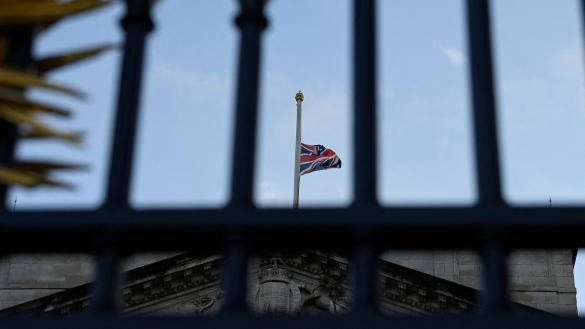Author: Mark Woods, 10 September 2022
At Christmas 2020 Queen Elizabeth's address to the nation was delivered in the shadow of the Covid-19 pandemic. She praised those in the front line of the response to it, saying: ‘We continue to be inspired by the kindness of strangers and draw comfort that – even on the darkest nights – there is hope in the new dawn.’
The parable of the Good Samaritan, she said, was another example of kindness: ‘Good Samaritans have emerged across society showing care and respect for all, regardless of gender, race or background, reminding us that each one of us is special and equal in the eyes of God.’
In her Christmas messages to her people, the Queen has returned several times to this familiar story. It seems to have struck a particular chord with her, resonating with her strong belief in service to others.
In 1989, she reflected on the damage humanity was doing to our environment – this before the world really woke up to the terrible danger posed by climate change. While she payed tribute to the efforts of scientists and engineers, she said: ‘But these technical skills are not enough by themselves. They can only come to the rescue of the planet if we also learn to live by the golden rule which Jesus Christ taught us – “love thy neighbour as thyself”.’ In the story, she said, the neighbour was the man who stopped and cared for the injured man. Speaking particularly to children, she said: ‘It's not very difficult to apply that story to our own times and to work out that our neighbours are those of our friends, or complete strangers, who need a helping hand. Do you think they might also be some of the living species threatened by spoiled rivers, or some of the children in places like Ethiopia and Sudan who don't have enough to eat?’

She returned to the story in 2004, stressing the fact that the Samaritan and the man he helped were strangers and foreigners to one another. ‘The implication drawn by Jesus is clear. Everyone is our neighbour, no matter what race, creed or colour,’ she said. ‘The need to look after a fellow human being is far more important than any cultural or religious differences.’
She modelled this in her own life by reaching out across these boundaries herself. When he was Chief Rabbi, Jonathan Sacks recalled an event at St James' Palace in 2005 commemorating the 60th anniversary of the liberation of Auschwitz. Queen Elizabeth was meeting a group of Holocaust survivors, and contrary to her usual practice she stayed for a long time after the event was scheduled to finish, talking patiently with each of them until they'd finished telling their story. It was ‘an act of kindness that almost had me in tears’, wrote Lord Sacks. He continued: ‘We do not always appreciate the role the Queen has played in one of the most significant changes in the past 60 years: the transformation of Britain into a multi-ethnic, multi-faith society. No one does interfaith better than the Royal family, and it starts with the Queen herself.’
In drawing such inspiration from Jesus' parable of the Good Samaritan, the Queen showed not only the depth of her own Christian faith but also the richness of the story, which still speaks powerfully across the millennia.
Share this:

Nation mourns monarch whose life was rooted in the Bible
The nation and Commonwealth mourns a monarch who was ‘a remarkable public servant’, and whose life was rooted in the Bible, said the Chief Executive Officer of Bible Society today.

This is a space for sharing your prayers of thanksgiving for the life of Her Majesty Queen Elizabeth II, for the Royal Family as they grieve for her and for the nation and Commonwealth as we too mourn her.